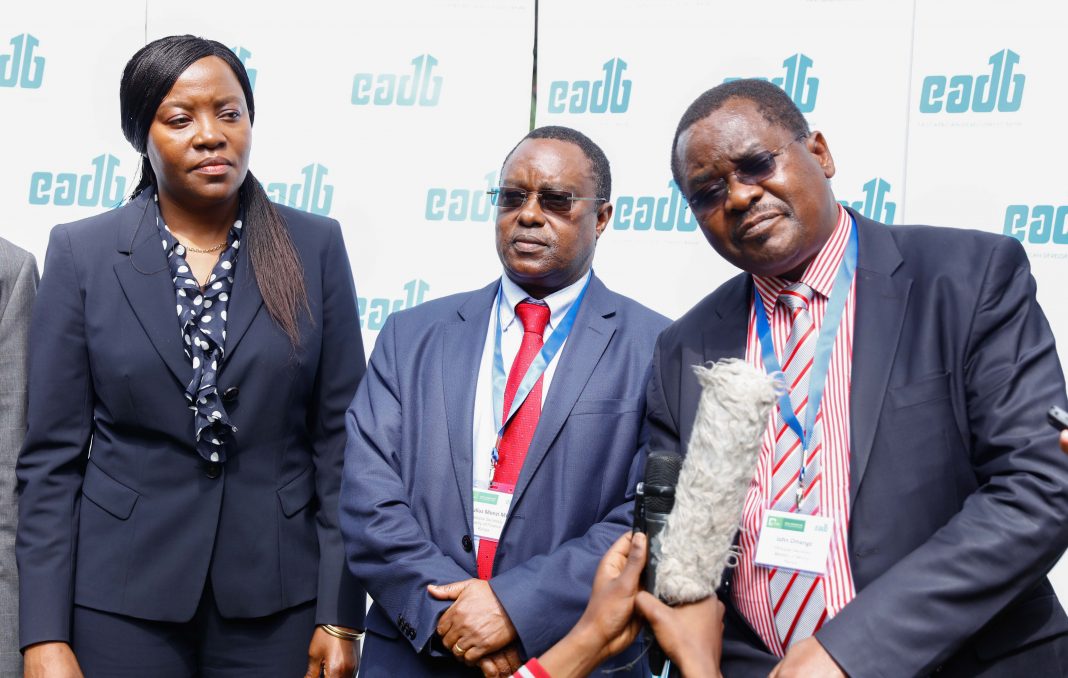|
The East African Development Bank (EADB) this month hosted two events to develop the East African extractives industry in Nairobi, Kenya. Phase one of the workshop started from August 2-3, 2019 where EADB hosted permanent secretaries and other senior government officials from across East Africa to train them in negotiating contracts better as pertains to natural resource management in the extractives industries. Lawyers from DLA Piper implemented the workshop. From August 5-9, 2019, the EADB also hosted public sector lawyers and legal professionals in the extractive industry to boost them with greater negotiation skills. The workshops were the seventh and eighth of their kind, hosted by the EADB, in partnership with law firm DLA Piper, as part of a series to develop natural resource management in East Africa to ensure that the region maximizes its benefits from the exploration, exploitation and extraction of its own resources. Speaking at the opening of the event, EADB’s Director General Ms. Vivienne Yeda noted that ‘it is increasingly critical that host countries are able to derive tangible benefits from the exploitation of their natural resources.’ ‘Natural resources are a public good that if well managed have the potential to drive economic development, and if well invested can actually reduce income inequality and spur meaningful job creation. If national governments benefit from royalties and taxes stemming from the mining sector, and if these dividends are well invested into human capital development and economic diversification, then the windfalls from natural resource discoveries can be used to catalyse socioeconomic development and to develop a strong economic base for East Africa to grow.’ Yeda further emphasized that ‘in addition to developing local value addition, export revenue and skilled job creation, both foreign and domestic mining companies should be compelled to operate according to strict environmental and social standards’, whilst ‘national governments must be compelled to invest to ensure that natural resource wealth is distributed evenly and that the benefits accrue to current and future generations, even after East Africa’s natural resources have been depleted’. Principal Secretary to the National Treasury (Kenya), Dr. Julius Monzi Muia, was also present at the launch and expressed his delight at, and thanked EADB for, the initiative. In explaining the infamous resource curse, Dr. Muia explained that ‘well-structured government policy relating to natural resource exploration, exploitation and exportation can prevent an economy from experiencing the infamous resource curse and can instead leave an economy better off, with more resources to invest in healthcare, education, infrastructure and a diversified economic base, that will in turn promote job creation and cement the gains to sustainable economic growth.’ Dr. Muia further expressed that ‘it is critical that we, as civil servants, all work together to maximize the benefits accruing to our local economies and populations from natural resource rents’, noting that ‘mining agreements typically constitute substantial and long-term investments and are complex to structure, requiring specific attention to environmental and social issues, land issues, the protection of artisanal miners in the establishment of multinationals, taxation, royalties and value addition’ and that the finiteness of natural resources requires East African legal professionals and policymakers to ‘ensure that we fully utilize the potential benefits accruing from a onetime endowment from the onset.’ The training series is organised by EADB and facilitated by global law firm, DLA Piper. It has been designed for public sector lawyers and legal professionals involved in negotiating transactions and drafting agreements on behalf of Governments in extractive sectors and other large-scale projects. The latest trainings were the seventh and eighth in the series following from recent trainings in Dar es Salaam, Tanzania and in Kigali, Rwanda.
|
EADB holds training for public sector officials and lawyers in extractive industry

- Advertisement -






